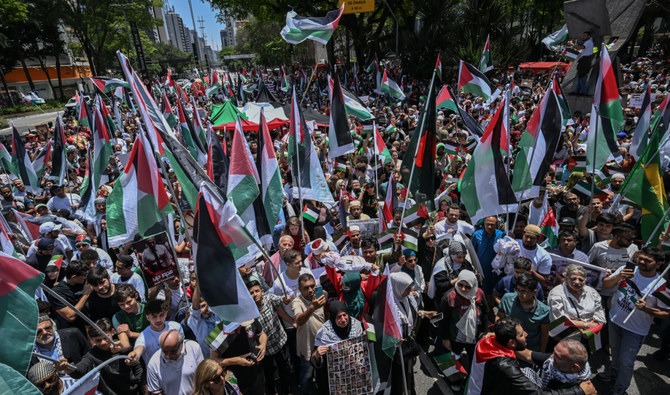Latin American nations are forming a regional pro-Palestinian bloc, as they express their condemnation of Israeli military action in Gaza and the tragic deaths of Palestinian civilians. The emergence of this solidarity comes in the wake of Bolivia severing diplomatic ties with Israel due to its attacks on Gaza, a move that has been met with widespread support from the region. This marks an unprecedented development in Latin American foreign policy.
Bolivia Leads the Way
In a groundbreaking decision on October 31, Bolivia announced its decision to sever diplomatic relations with Israel, citing Israel’s relentless attacks on Gaza as the primary reason. Palestinian-born Sheikh Isa Amer Quevedo, a political scientist leading an Islamic center in Bolivia, expressed the joy of the Muslim community in the country at the government’s stance. He emphasized the need for countries to pressure those responsible for crimes against humanity and urged other nations to follow Bolivia’s example. Furthermore, Bolivia is sending 73 tons of food aid to Gazans in a show of solidarity.
Chile and Colombia Stand with Palestinians
In a swift sequence of actions, Chilean President Gabriel Boric recalled the ambassador to Israel, condemning Israel’s “unacceptable violations of humanitarian international law” in Gaza. Chile, home to the world’s largest Palestinian population outside the Middle East, has a significant and influential Palestinian community. While Chile’s ties with Israel and the United States remain essential, experts suggest it’s unlikely to sever relations.
Colombia also expressed its strongest rejection of Israeli actions in Gaza and has criticized Israel’s disproportionate response to the Hamas attack on October 7. President Gustavo Petro’s vocal condemnation of Israel’s Gaza assault and his comparison of Israel to the Nazis marked a significant shift. Israel suspended its military equipment exports to Colombia in response, but Petro affirmed his readiness to sever ties with Tel Aviv if necessary.
Argentina and Mexico Join the Pro-Palestinian Wave
On November 1, both Argentina and Mexico took a remarkable step by criticizing Israel’s bombing of the Jabalya refugee camp and other Gaza locations. These actions are significant given the strong Zionist lobby and large Jewish communities in these South American countries. While these governments’ actions may evolve, they signal a trend among progressive administrations in the region towards a more pro-Palestinian stance.
Argentinian-born Rafael Masry, president of the Palestinian Confederation of Latin America and the Caribbean (COPLAC), emphasized the importance of these nations expressing their pro-Palestinian views. However, he acknowledged that economic pressures could still be applied. In Argentina, Jewish leaders met with President Alberto Fernandez, demanding government intervention to release hostages of Argentinian origin held by Hamas.
Honduras, on the other hand, announced on the same day that it would recall its ambassador to Israel for consultations due to the “serious humanitarian situation affecting the Palestinian civilian population in the Gaza Strip.”
Brazil’s Potential Role in the Emerging Pro-Palestinian Bloc
Brazil, the most influential nation in the region, could play a pivotal role in further strengthening the emerging pro-Palestinian bloc. If President Luiz Inacio Lula da Silva adopts a more critical stance on Israel, it could potentially attract more countries to the cause. Lula has previously expressed concern about Israel’s actions and was the first Latin American leader to recognize Palestine’s statehood in 2010.
However, some analysts are skeptical of Lula’s approach, citing his continued import of Israeli military equipment and technology. Historian Tufy Kairuz believes it is becoming increasingly embarrassing for Lula as other Latin American nations manifest support for Palestine. Still, experts like Prof. Pablo Alvarez Cabello suggest that Lula could play the role of a “non-aligned leader” who heads a group of countries seeking a diplomatic shift on the Palestinian issue, potentially leading to more balanced international pressure at the United Nations.
As Latin American nations join hands in expressing solidarity with Palestinians, their collective stance presents a unique challenge and opportunity for the international community to address the ongoing conflict in the Middle East. The emergence of this pro-Palestinian bloc underscores the growing significance of Latin America in global politics and diplomacy.















